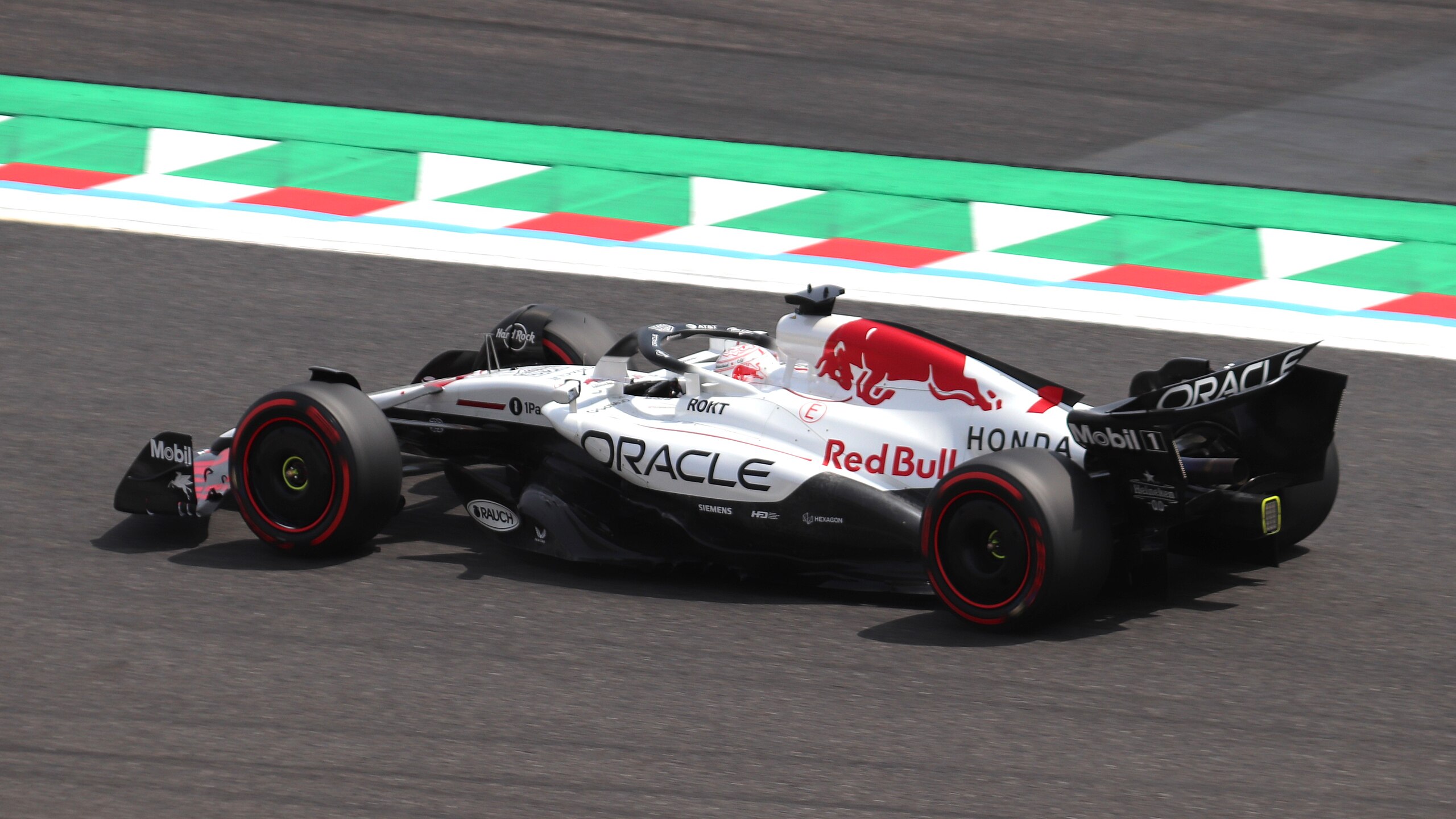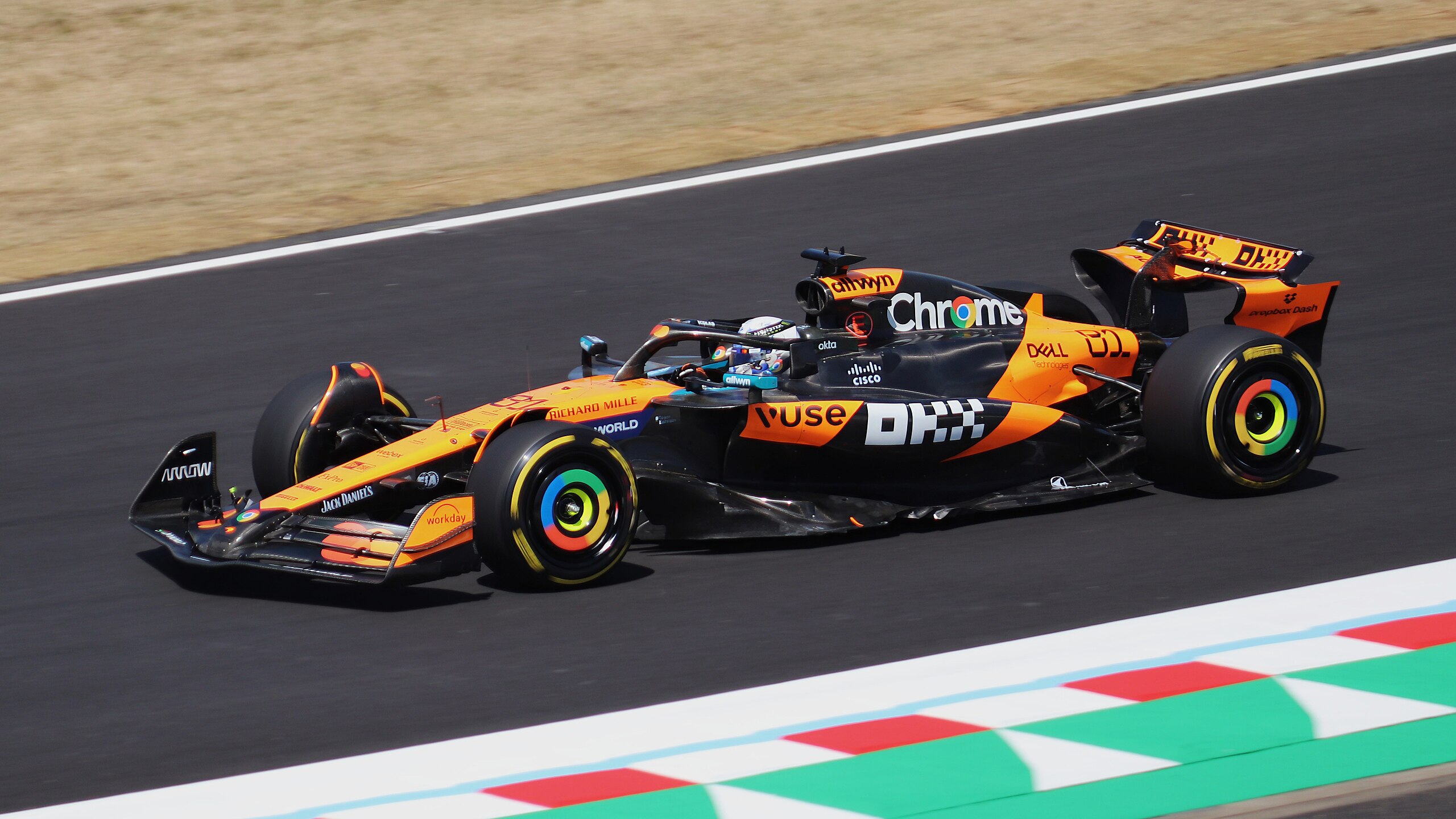Are you willing to sponsor?
Are you ready to explore the transformative power of athlete sponsorship for your brand? Click here to learn more about how sponsorship can help brands grow and thrive in the exciting world of motorsports.
By Silvia Schweiger| Posted June 27, 2022 | In Marketing Sportivo
Sports sponsorship is a great marketing tool that can make your company or brand visible and popular, or more popular than it already is.
The visibility that sports sponsorship can offer is indeed immediate (although it clearly depends on many variables, such as the sports property invested in, the space the brand covers, the size of the brand etc.), but not all sponsorships necessarily translate into positive results.
It is always important, before approaching a sports sponsorship, to have or define a clear and precise strategy that will enable you to achieve the marketing, communication or business goals you set at the outset.
If you are a CMO, or an MD or entrepreneur who wants to invest in a sports sponsorship project, then this article is for you.
In fact, in the next few lines I will talk about how to approach a sports sponsorship efficiently, starting with choosing the sports field that is most in line with your brand, moving on to the most appropriate sports property, and finally how to take advantage of all the marketing benefits that a sponsorship project offers you. We will also see what benefits a sponsorship can bring to your brand and how to take advantage of every aspect of it.
In short, the goal is to give you a kind of “guide to success” to best define a proper sports sponsorship strategy.
Sports sponsorship is a real communication tool that any company/brand can use; it is part of all those actions that enable the brand to achieve its business and communication goals. It is up to the company to decide whether or not to make use of it.
But why specifically sports sponsorship?
This is one of the most common questions we get asked.
The answer is very simple: because through sports sponsorship a brand, from any industry, can communicate and engage its target audience effectively by leveraging the passion they, like us, share for sports. We are all of us, sports fans in one way or another. We watch sporting events, pay to watch live games or competitions, cheer for a team or have a favorite athlete.
What’s more: we accompany our children to various sports activities for years, practice one or more sports ourselves.
Sports is one of the most widely watched forms of entertainment in the world, across the board.
Communicating with our target audience through something they are passionate about and follow, often since they are children, is just perfect.
But which sport should I invest in? In what I like and am passionate about?
Absolutely not. To figure out which sports arena is best for your brand, you need to forget the fan in you and think objectively and strategically.
You must first understand where your target audience is and therefore what sport your target audience is passionate about and watching. Every sports discipline, every sports subject has its own target audience, and it is essential to go and invest where yours is.
For example: if your target audience is mass consumers, perhaps men between the ages of 18-30, of average socioeconomic status, and with medium/low spending power, there is no point in evaluating sports such as golf or sailing. Before investing in any project, one must analyze the numbers and audience characteristics of the project. Every sport is different and you have to make sure you are investing in the right one and then talk to our consumer.
Another important aspect to evaluate when approaching a sports sponsorship project are the values related to the discipline or team or athlete in which you want to invest.
Just as with the target audience, each sport and each sports property has its own specific values, and these must be in line with those of the company and the brand.
Let me give you an example.
Recent research by Nielsen for Formula 1 found that the values the public identifies with the discipline are: exciting, technological, expensive, competitive and fun.
Surely these are not the same values that soccer or cricket represent.
It is important to know how various sports are characterized in terms of values, so that you can leverage and transfer those values to your brand.
Once you have defined the area of sports in which to invest, you need to figure out what you need in terms of marketing benefits to achieve your goals and whether the organization, event or sportsman can offer them to your brand.
The benefits, or more precisely “marketing rights” attached to sponsorship, vary according to the budget you have and invest and also according to your goals.
Let me give you some examples of marketing rights that you acquire as a sponsor of a Formula 1 or MotoGP team:
And so much more, which often depends on and is evaluated according to the specific needs of each individual company. I always repeat: there are no predefined, one-size-fits-all packages; you can build them according to what you need.
It is very important to always check how and whether the sports entity can support you during the implementation of the program so that you can make the most of all the tools at your disposal so that the sponsorship is effective.
This is a very important point: the sponsorship strategy must consider the budget and resources available to implement the plan. Depending on your budget depends on the type of sponsorship you can approach.
We often talk about this in some of our articles; there are various types of sponsorship packages, and these depend mainly on the goals and budget that the company or brand can invest. If you want your brand to be highly visible on the livery of a Formula 1 car or on the jersey of a soccer team, you need to know that the budget required is different from a smaller, less visible location.
In addition to the budget you have to invest to achieve brand awareness and all related marketing services, you also have to consider that part of the budget has to be used for implementing them.
Let me explain; if as an official sponsor of a Formula 1 team you have 20 Paddock Club tickets available to host your best customers at some races of the season, you also have to think about the cost of transporting and hosting the guests. Just as if you have available the show car of the Formula 1 team you sponsor and want to use it for an event or trade show, you know that you have to bear the costs of transporting and operating it.
Or again: if you want to hold a sweepstakes using the merchandise of the team you sponsor, you need to consider the costs for management and promotion.
Once you have made all these considerations, you need to evaluate which of the potential sponsorships is best for your brand and which benefits are the most useful for your marketing strategy. And choose.
Having a clear strategy before starting to invest in a specific sponsorship project always has several advantages.
First, it can help you focus your efforts on the opportunities that are most in line with your brand and goals and that are therefore most likely to succeed. This can undoubtedly save you time and money by avoiding evaluating or investing in proposals that are not in line with what you need.
Second, a clear sponsorship strategy allows you to be able to devise all the activations you need to interact and create a relationship with your target audience, the famous “engagement.” By harnessing your target audience’s passion for the sports subject you sponsor you can bring so many actions to life, you just have to be creative. From content to be shared via social media, to promotional activities, from hospitality, to events.
There are really no limits.
Third, having a clear and defined sponsorship strategy can help you measure the success of the program you are sponsoring. Still too often companies and brands navigate by sight, without a clear idea of what happens before, during and at the end of the sponsorship. By setting goals and monitoring the results, you can determine whether the direction you have taken is the correct one and, if necessary, make the necessary changes to make it work.
I would say that we have covered all the basic steps that should always be considered when deciding to invest in a sports sponsorship.
In case you need support in one or more phases of this journey, a super partes communications agency like ours can be ideal for choosing the program in which to invest, for evaluating and defining the various opportunities in the best possible way, and finally for devising and taking advantage of all the activations most in line with your brand.
If you have any curiosity, please do not hesitate to contact us
Are you ready to explore the transformative power of athlete sponsorship for your brand? Click here to learn more about how sponsorship can help brands grow and thrive in the exciting world of motorsports.

Associate Director, Executive Marketing and Commercial at RTR Sports Marketing, a London-based sports marketing company specializing in motorsport for over 25 years. Without sports, life is boring
The online platform where you can discover the latest trends, strategies and insights from the exciting world of sports marketing.
View our blog
June 26, 2025
This content is password protected. To view it please enter your password below: Password: [...]
Read More
June 18, 2025
When you think of sports, what comes to mind? For many, the answer is sports marketing management. We see Super Bowl or Olympic commercials and it seems like every other product is marketed t[...]
Read More
January 1, 2025
Sport sponsorship is a dynamic and potent marketing strategy that has become deeply ingrained in the fabric of modern sports. As stakeholders in the sports industry increasingly recognize the[...]
Read MoreIn an era where it is possible to get anywhere with a click, there is a strong temptation to approach teams and properties directly for sponsorship projects.
By doing so, we are convinced that we are shortening the value chain, saving time and money. However, these DYI methods are anything but risk-free and what initially appears to be a competitive advantage soon turns into a problem that is difficult to resolve. That’s why there are agencies. And this is why you should rely on us for your sponsorships.
When first approaching a sponsorship or sports marketing project, it is difficult to know immediately which stakeholders are correct, what the decision flow is, and what the right timelines are for each process. Sports is a very specialized field of action, and fitting effectively into its paths can take a lot of time and therefore money. We, on the other hand, know referents and spheres of action and know who to talk to, when and how. So you are also more effective.
Sports is an immense passion, and for our heart colors we would be willing to do anything. But business is a different business, and it is important to make the best possible strategic decisions based on independent research, statistics and reliable data. A sports marketing and sports sponsorship agency like RTR has an objective, 360-degree picture of the scenario and can tell you what is really best for you: which sport, which athlete, which team. This is because we possess a great deal of data and information on ratings, segmentation and attitudes. Because the numbers don’t lie. Never.
Activations are the real heart of sports sponsorship. Without them, there remains only a blank sticker on a motorcycle, car or uniform and no contact with the public, no emotional connection, no impact on the bottom line. Then how do you do it? It certainly won’t be the teams or the athletes who will help you leverage sponsorship and enjoy the many marketing rights you have paid for. To bring out the best in a sports marketing project you need an agency that knows how to use sponsorship to engage the fanbase on the Web, to reach out to Shopping Centers, to organize hospitality, to develop B2B and B2C opportunities, and to get “your” athletes in front of millions of potential consumers.
Would you ever go to the dealer who sold you the car and ask if the competitor’s car is better? No, of course. So, how do you expect to get firm measurements of the effectiveness of your sponsorship if you do not rely on someone super partes? At RTR, we have always worked with independent third-party agencies that allow us to know the return on any exposure of your brand on TV and in the media. In addition, we believe in calculating ROI as the ultimate measure of your success-so we can tell you for every penny you spend how much you are making.
We have been involved in sports sponsorship and sports marketing for more than 15 years. We are consultants in the sense that our goal is to maximize your investment, but we are also an agency that manages the project from start to finish. We have been doing this since 1995 with passion and professionalism, following three principles that have become cornerstones of our business: independence, verticality and transparency.
I would like to highlight the fact that one of the qualities of RTR is its great ability to approach the sponsorship scenario strategically, together with its passionate attitude, its amazing enthusiasm for solving problems, and its high level of professionalism.
Gianluca Degliesposti
Executive Director Server&Storage EMEA
Eurosport is truly delighted with its business relationship with Riccardo Tafà, who has become extremely popular, thanks to his detailed knowledge of the sports marketing sector and his highly diligent attitude to work.
Francois Ribeiro
Commercial Director
Passion and Expertise are the features that I have found in RTR since the very beginning. Serious and reliable professionals but also very helpful, nice and open-mind people, willing to listen and compare different ideas. All the values in which RTR believes make this agency a partner, not just a supplier, a partner with whom we have had the opportunity to achieve significant commercial results in term of success and image.
Luca Pacitto
Head of Communication
We have been working with RTR Sports Marketing for over 10 years. The objectives and the programmes of collaboration continue to be renewed and to grow with mutual satisfaction. I believe RTR is a team of great professionals led by Riccardo Tafà, who I consider a manager of exceptional skills and with a great passion for his work.
Lucio Cecchinello
Team Principal
I have known and worked with Riccardo Tafà since 1995 when we collaborated for the first time on a project for the Williams Formula 1 team. Several clients followed. After leaving Williams to work for Gerhard Berger then owner of the Toro Rosso F1 Team, I turned again to Riccardo to seek his help in finding a tool supplier for the team and Riccardo duly obliged with an introduction to USAG, a partnership with Toro Rosso which endured for five years. I recently started a new role as Group Commercial Director for the renowned Andretti Autosport organisation and I find myself working with Riccardo once again on a number of interesting projects. Why has this relationship with Riccardo endured ? He’s smart, knows the commercial side of sport inside out and back to front and he’s honest and trustworthy. Riccardo Tafà is a “doer” not a “talker”: in over 20 years I have never had a dispute either with him or with a company that he has introduced and each partnership introduced by Riccardo has delivered quantifiable ROI to rights holder and sponsor alike. I can think of no better testimonial of Riccardo’s diligence, knowledge, contact base and hard work than that.
Jim Wright
Group Commercial Director
The online platform where you can discover the latest trends, strategies and insights from the exciting world of sports marketing.
View our blog
July 4, 2025
When, in 1950, the Formula 1 kicked off at Silverstone, no one could have predicted that, 75 years later, it would become much more than a sport. Today, F1 is a global phenomenon, a cultural,[...]
Read More
July 1, 2025
In the complex and exciting world of Formula 1, performance no longer belongs exclusively to wind tunnels and race strategies. It also unfolds in boardrooms, brand labs, and experiential mark[...]
Read More
June 26, 2025
The European Commission has provided Liberty Media Corporation with unconditional approval to complete the acquisition of the MotoGP World Championship. The process of annexing the top motorc[...]
Read More